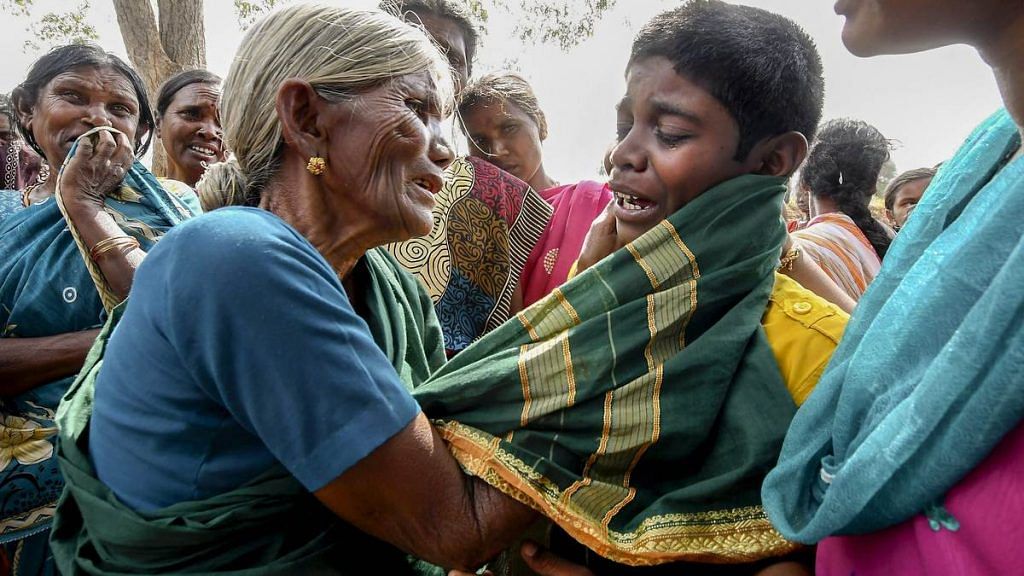Karnataka police have arrested four people, including two priests at the Kichchugutti Maramma Devi temple, for poisoning prasad.
Bengaluru: The recent deaths of 15 devotees from poisoned prasad at a Karnataka temple were the result of a ruthless seer’s quest for vengeance after being sidelined in the shrine’s management affairs, police have said.
Pattada Immadi Mahadeshwara Swamy of the Sallur math in Chamarajnagar, a junior pontiff at the Kichchugutti Maramma Devi temple, was arrested Wednesday for the poisoning, with a suspected paramour named Ambika, her husband, and another priest named Doddaiah among three others taken into custody.
The four, booked for murder, culpable homicide and criminal conspiracy, allegedly emptied 15 bottles of pesticide into the offerings prepared for a temple event.
“Two accomplices poured 15 bottles of pesticide into the prasad after sending the cooks away for a while,” said inspector general (south zone) Sharath Chandra, who headed the investigation team comprising 22 officers and 40 other personnel.
“When the cooks returned and noted that the food smelled different, the two accused said it was the smell of camphor, which had been added in the tomato rice,” Chandra added.
According to police, the motive was to defame the shrine’s management, and open up an avenue for the seer to gain prominence once again.
The 15 devotees included two children, and 27 others who consumed the food remain critical.
For money?
Police trace the roots of the conspiracy to earlier this year, when local villagers began to demand that the temple set up a trust to handle the money coming in through donations.
When the temple reportedly set up the trust without consulting the seer, he was left seething, police said.
Then, in October, the temple trust decided to construct a tower or gopuram. The seer, believed to be eager to involve himself in temple affairs, approached a Tamil Nadu-based architect and worked out a Rs 1.5 crore bid.
When the proposal was submitted to the trust, they allegedly rejected it and accused the pontiff of inflating the cost estimate to score a profit. They also said the trust had just Rs 35 lakh, claiming that Rs 1.5 crore was too steep a price for them.
Eventually, the trust zeroed in on a deal that would cost them Rs 75 lakh for the construction. It was at the ground-breaking ceremony for the gopuram on 14 December that the poisoned prasad, a rice preparation, was distributed among the attendees.
Also read: Why onion and garlic have become too hot to handle for Karnataka
Over 80 still in hospital
Nearly 150 people were served the prasad, and they began falling ill within minutes.
Doctors at the K.R. Hospital in Mysuru, where the injured were taken, had at once dismissed the possibility of spoilt food causing the illness.
They are believed to have told former chief minister Siddaramaiah that the fact that the victims fell ill within half an hour of consuming the food suggested poisoning. This was what prompted police to investigate the angle of internal conspiracy in the temple.
On the day of the incident, nine people lost their lives, while six others died over the next four days. Over 80 people remain hospitalised, while some devotees managed to dodge the poison when the smell emanating from the food led them to reject it.
As soon as reports of devotees’ deaths started spreading, Doddaiah rushed to a hospital in Mysuru with claims of a stomach ache. When it was found that he was not ill, police began questioning him, and he eventually confessed, police said.
Also read: Another Sabarimala-like crisis is brewing in Kerala
